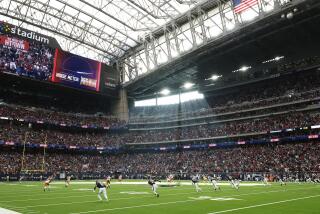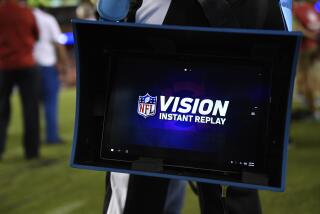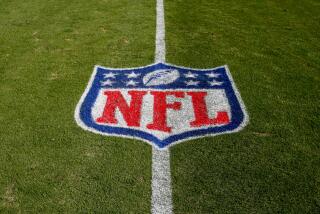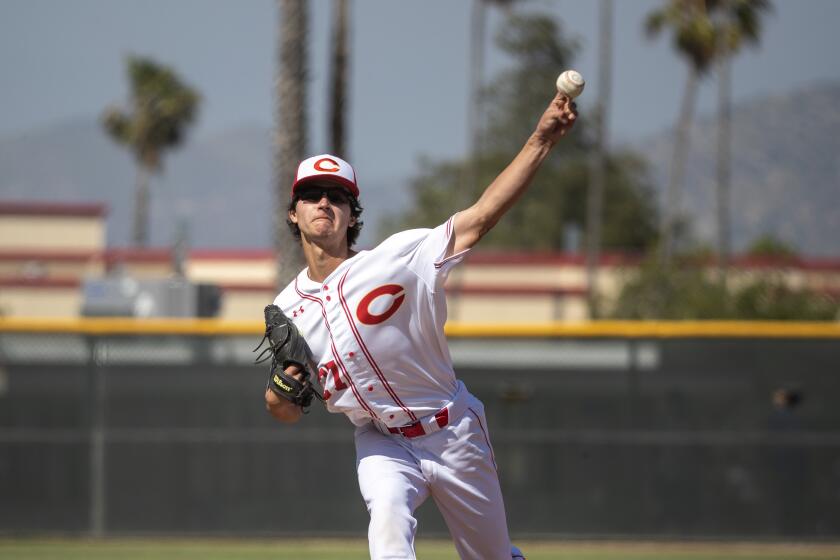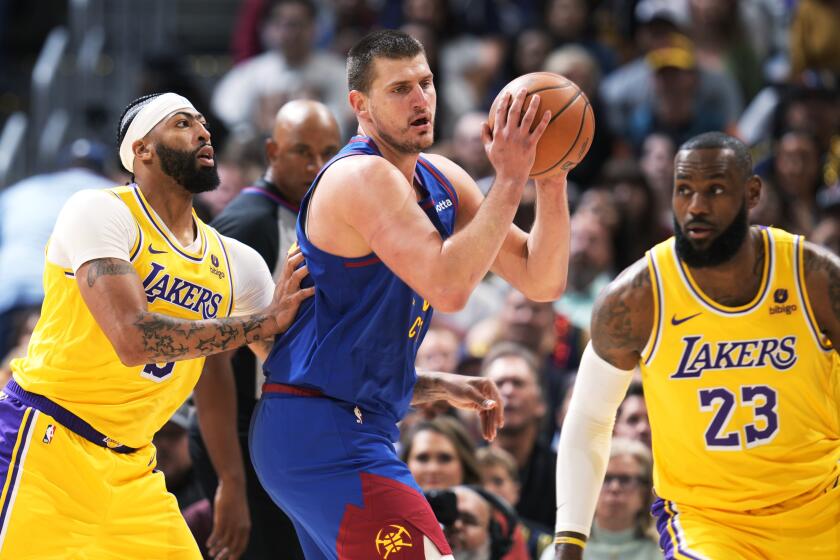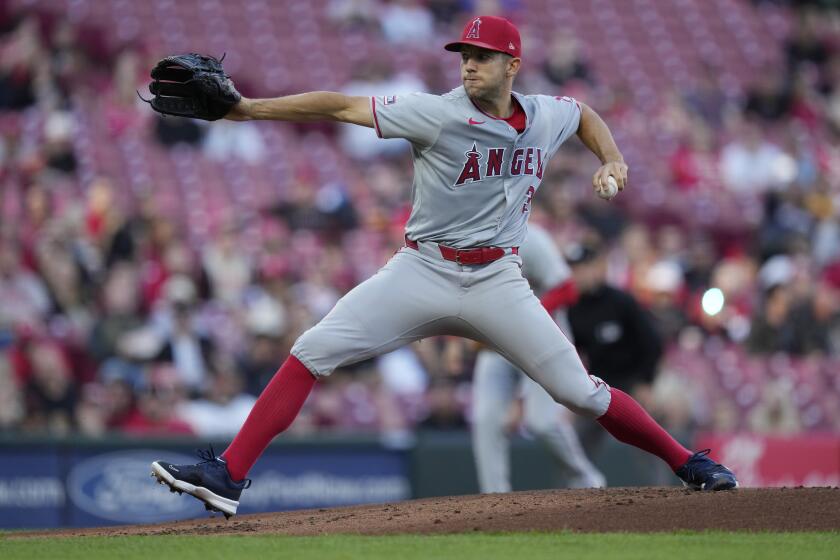New NFL rule outlaws players from lowering their heads to initiate contact
In the NFL, it can take years and sometimes decades to gather enough momentum to make a rules change.
But commissioner Roger Goodell said Wednesday there was virtually no pushback on a new rule that outlaws players from lowering their heads to initiate contact.
“Everyone’s enthusiastically behind this and in support of this,” Goodell said at his annual news conference that closes the league’s March meetings.
When asked about some players questioning the adjustment and even wondering if it will fundamentally change the game, Goodell said that coaches were involved in the decision and players “haven’t yet seen all the data that we have, and they haven’t seen exactly how we’re going to approach this.
“But,” he added, “I’m confident in the next few months we’ll be able to do that. They’ll understand, and our game will be in a much better place for it.”
All-Pro cornerback Josh Norman, for one, is not a fan of the new rule.
“I don’t know what other way to say it but it’s football…” the Washington star told USA Today Sports. “I pray for the game and hope it’ll still be what it is, but it seems in our day and age, the game as we know it is coming to an end. But really, we’re all playing the game the way it’s supposed to be played.”
The rule change came late Tuesday, hours after the league had adopted new standards for what constitutes a catch, making the helmet ruling almost feel like an afterthought. But it’s a significant change, and probably would enable officials to use replay to determine whether to impose a 15-yard penalty or even eject a player for such an infraction. If so, that would mark the first time replay would be used for a safety violation or a foul of any kind.
“If we were able to have replay confirm one of these fouls and also confirms a player be ejected,” Goodell said, “I think there is more confidence among the coaches it will be called accurately.”
Goodell said that in the coming weeks the league will be refining the rule to determine which infractions would be 15-yard penalties, and which would warrant an ejection.
“We’ve done a great deal of work on this, but now we want to go back and look at what’s that standard of when it’ll go from a disqualification of a player to a fine or suspension or any other alternative from there,” he said. “That’s the work that we’re going to be doing, and that’s the work that we’ll be educating our clubs back in May and June with the clubs individually.”
Concussions last season were at a five-year high, including an uptick during the preseason and regular season. There was an increase in players self-reporting concussions, and an increase in concussions caused by helmet-to-helmet hits. Also during the 2017 season, Pittsburgh Steelers linebacker Ryan Shazier suffered a serious spinal-cord injury from a collision.
Asked if the new regulation might be deemed the Ryan Shazier rule, Steelers owner Art Rooney II said, “I would hesitate to say that was the impetus for it.
“The competition committee has noticed that we still have players that are using the helmet as a weapon, and the intent is to get that out of the game. It’s the lowering of the head the way the rule is being written and using the helmet to attempt to injure.”
That’s all, folks
Under a new rule, if a team scores a winning walk-off touchdown at the end of a game, the sides won’t come back on the field for an extra-point attempt. It’s game over.
That surely will impact bettors at some point, and it also leaves open a loophole — albeit a highly unlikely one. If Team A were to score a touchdown to go up by a point or two as the clock expired in regulation, Team B would be denied a chance to block the extra-point attempt and return it for points.
The league’s rationale for that? Team A would have the option of simply taking a knee instead of attempting the PAT. Minnesota took a knee at the end of that miraculous playoff victory over New Orleans in January, when Stefon Diggs scored on the pass from Case Keenum.
Only in L.A.
Goodell in 2012 wrote a memo to all 32 clubs outlining his expectations for the league’s return to Los Angeles, and how the stadium should not just be a place to play games but an entertainment district that could play host to all sorts of events, essentially a West Coast hub for the NFL.
The league took a big step in that direction this week in announcing NFL Media will be moving to the Inglewood stadium, which is due to open in 2020, with the development including 200,000 square feet of studio space for NFL Network, NFL.com, and the like. Goodell said the stadium is in the mix to potentially play host to the draft, Pro Bowl, and other offseason events.
“That’s why we want to have that presence of the NFL Network there, because we want to be able to show that, we want people to feel that,” he said. “We want to provide that kind of stage for what we think is going to be the world’s finest stadium.”
Follow Sam Farmer on Twitter @LATimesfarmer
More to Read
Get our high school sports newsletter
Prep Rally is devoted to the SoCal high school sports experience, bringing you scores, stories and a behind-the-scenes look at what makes prep sports so popular.
You may occasionally receive promotional content from the Los Angeles Times.

